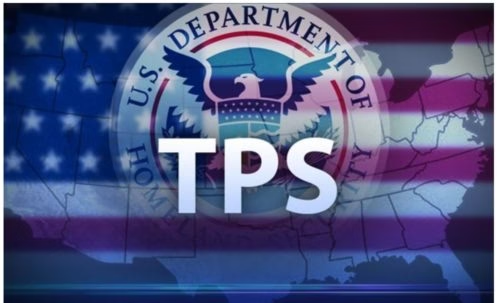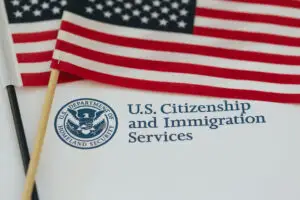The United States will end Temporary Protected Status (TPS) for Burmese nationals. Homeland Security Secretary Kristi Noem announced Tuesday that TPS ends on January 26, 2026. After that, Burmese nationals with TPS must leave the U.S. or secure another legal status.
TPS allows nationals of countries facing armed conflict, natural disasters, or other extraordinary and temporary conditions to live and work legally in the United States without fear of deportation for a set period of time. Under U.S. law, the situation in the designated country must be reviewed regularly.
At least 60 days before a TPS designation is due to expire, the Secretary of Homeland Security must, after consulting with the relevant federal agencies, determine whether the conditions that led to the designation still exist. If they do, protection may be extended for 6, 12, or 18 months. If not, the designation must be terminated.
Secretary Noem says she followed this exact process. The Department of Homeland Security (DHS) says she consulted interagency partners and used an assessment from U.S. Citizenship and Immigration Services and the State Department.
“Restoring the Temporary Nature of TPS”
In announcing the end of protection for Burma, the homeland security secretary stressed that TPS was never meant to be permanent.
“This decision returns TPS to its intended temporary role. Burma’s improved security means Burmese citizens can now go home safely, so we are ending Temporary Protected Status,” said Kristi Noem.
The U.S. official pointed to what she described as notable progress in the country:
“Burma has made significant advances in governance and stability, including the end of the state of emergency, plans for free and fair elections, successful ceasefire agreements, and improved local governance contributing to better public services and national reconciliation.”
On this basis, DHS argues that the conditions that once justified granting TPS are no longer met.
A Decision Framed as in the “National Interest”
The statement notes that Secretary Noem has concluded that Burma “no longer meets the statutory requirements” for a TPS designation. According to the assessment carried out by immigration authorities, “overall country conditions have improved to the point where Burmese citizens can return home safely.”
She emphasized that allowing Burmese nationals to remain is no longer aligned with U.S. interests. The statement asserts, “permitting Burmese nationals to remain temporarily in the United States is contrary to the national interest of the United States.”
The federal government has not yet specified how many people are directly affected by the decision or what options they will have to regularize their status through other immigration categories.
With an end date set for January 26, 2026, current beneficiaries have only a few months to consider their legal options: filing for another form of protection, changing status if they qualify, or preparing to return to their country of origin.
U.S. authorities are already encouraging those who decide to depart to report their exit through a government app. “Burmese nationals returning home are encouraged to use U.S. Customs and Border Protection’s CBP Home app to report their departure from the United States,” DHS said.
A Shift With Significant Human Consequences
Beyond bureaucratic language, the end of TPS for Burma could have major consequences for families who have been living in the United States for years. The status allows people to obtain a work permit, rent housing, and, in many cases, raise children who have grown up on U.S. soil.
While the administration highlights “progress” inside the country, many human rights organizations continue to point to the fragility of Burma’s political and security situation. DHS, however, insists it is following the law: once it determines that the “extraordinary and temporary conditions” standard is no longer met, it must terminate the special protection.
The move on Burma highlights a broader shift: by insisting that TPS “must remain temporary,” Kristi Noem signals to all protected communities that the U.S. will strictly review and enforce time limits.
For Burmese nationals, the announcement signals urgent administrative and personal decisions ahead. As January 26, 2026 approaches, Washington’s resolve to end TPS for Burma contrasts with the uncertainties faced by those now preparing for possible return.








